The growing national divisions over law enforcement and race hardened further Sunday as police and political leaders condemned the recent killings of five officers in Dallas. One police chief referred to Black Lives Matter protesters as “criminals,” while a former D.C. law enforcement leader said the United States is “sitting on a powder keg.”
Even as people streamed into churches in Dallas and other cities and Americans tried to make sense of the past week of violence, demonstrations again were the order of the day.
Renewed protests over the latest fatal shootings of black men by police took place in Dallas, Baton Rouge, La., and the District of Columbia, although they remained peaceful, unlike the unrest that erupted late Saturday.
The momentary truce in the nation’s political wars also ended. The White House announced that President Obama will travel to Dallas on Tuesday to speak at a memorial service for the slain officers, but some questioned why the nation’s first African-American president was not also visiting Louisiana and Minnesota, where two black men were killed by police last week.
On the Republican side, presumptive presidential nominee Donald Trump edged away from his earlier calls for unity, criticizing Obama and presumptive Democratic nominee Hillary Clinton and tweeting that America is “a divided nation.”
Other comments were more incendiary.
“You can call it a powder keg,” Charles H. Ramsey, a former police chief in Washington and Philadelphia, said on NBC’s “Meet the Press.” “You can say that we’re handling nitroglycerin. But obviously when you just look at what’s going on, we’re at a very critical point in the history of this country.”
More details also emerged Sunday about Micah Xavier Johnson, the gunman who shot 12 officers in Dallas on Thursday night before law enforcement detonated a bomb-equipped robot in the parking garage where he had fled.
His rampage, during a Black Lives Matter protest, followed the police-shooting deaths of Alton Sterling in Baton Rouge and Philando Castile in Falcon Heights, Minn., a St. Paul suburb.
Dallas Police Chief David Brown said Johnson appeared delusional, taunted police during a standoff by singing and “laughing at us,” and wrote cryptic messages on a wall with his own blood. He also said Johnson was “determined to hurt more officers” and may have been planning a larger attack, citing evidence of bombmaking materials and a journal found in Johnson’s home in nearby Mesquite.
The 25-year-old Army veteran, who served in Afghanistan, “had been practicing explosive detonations” and possessed enough materials “to have devastating effects throughout our city and our North Texas area,” Brown told CNN.
The new information about Johnson’s behavior emerged after a tense Saturday night marked by the arrest of a prominent activist in the Black Lives Matter movement and protests in five cities nationwide that resulted in more than 200 arrests, according to activists and police.
At least 100 of those arrests were in St. Paul after what police described as rioting that injured 21 officers. In Baton Rouge, Black Lives Matter activist DeRay Mckesson was released on bond Sunday after being charged with obstructing a highway during a protest there.
In an interview Sunday, Mckesson called his arrest “unlawful” and said: “The protesters were peaceful last night; the police were not.”
The fast-moving events left Louisiana’s Gov. John Bel Edwards asking for prayers for his state and the country at a late-afternoon news conference. “We’re going to come out of this tragedy, and we’re going to be stronger,” he said, adding that the best way to remember Sterling, Castile and the five slain Dallas officers was with “peaceful demonstrations.”
Even as Obama flew back across the Atlantic from Spain after cutting short a European trip, aides were hastily assembling the details of his visit to Texas on Tuesday at the invitation of Dallas Mayor Mike Rawlings. The White House said Vice President Joe Biden also will attend the memorial service, as will former President George W. Bush, who will deliver brief remarks.
For Obama, the week’s events represented his latest effort to confront two of the great crises of his term: mass shootings and growing outrage over how police use force.
“I think that the overwhelming majority of people who are involved in the Black Lives Matter movement, what they really want to see is a better relationship between police and the community,” Obama said at a news conference in Spain. At the same time, he added, “I would hope that police organizations are also respectful of the frustrations people in these communities feel and not just dismiss these protests and complaints.”
A senior administration official said the president feels he must reach out to law enforcement after voicing the anguish of many African-Americans following the shootings in Louisiana and Minnesota.
Obama “channeled a lot of frustration on behalf of the African-American community, that not enough progress has been made” in curbing the excessive use of force, said the official, who spoke on the condition of anonymity in order to discuss internal White House thinking.
But in at least one Dallas church, Obama’s planned trip triggered its own degree of frustration. “Mr. President, I love you, I support you, I’ve defended you. But I need you to go to Minnesota,” the Rev. Frederick Haynes III said Sunday at Friendship-West Baptist Church in South Dallas. “Maybe if the same energy and love we bring when blue lives die, maybe if we bring that same attention, affection and love when black folk get killed in the hands of cops, maybe we’ll save a generation.”
The White House has not announced plans for Obama to travel to Baton Rouge or Minneapolis. But aides said he planned to address the issues raised in both cities on Tuesday and in the weeks ahead.
The national divide even extended to the Dallas religious community. Robert Jeffress, pastor at the First Baptist Church, shared a different message during a Sunday interview on “Fox & Friends.”
“The New Testament says in Romans 13:4 that law enforcement officers are ministers of God sent by God to punish evildoers,” he said, adding that he was “sick and tired of so-called ministers who do nothing but sow seeds of distrust and disrespect for the police.”
At a news conference in Minnesota, St. Paul Police Chief Todd Axtell spoke in equally blunt terms in expressing his support for police. “It’s really a disgrace,” he said of Saturday night’s protests over Castile’s death, according to Reuters. “Protesters last night turned into criminals. And I am absolutely disgusted by the acts of some, not all, but some.”
On CBS’s “Face the Nation,” two prominent figures from New York also expressed differing views. Former New York mayor Rudy Giuliani condemned the Black Lives Matter movement, which arose after the 2014 fatal shooting of Michael Brown by a white police officer in Ferguson, Mo.
“When you say black lives matter, that’s inherently racist,” Giuliani said. ”Black lives matter. White lives matter. Asian lives matter. Hispanic lives matter. That’s anti-American, and it’s racist.”
But New York City Police Commissioner William Bratton, who once served as Giuliani’s police commissioner, sounded a conciliatory note. Noting that he has had nearly 600 meetings with community leaders and activists in recent years, Bratton said, “It’s been a time of healing.”
Send questions/comments to the editors.

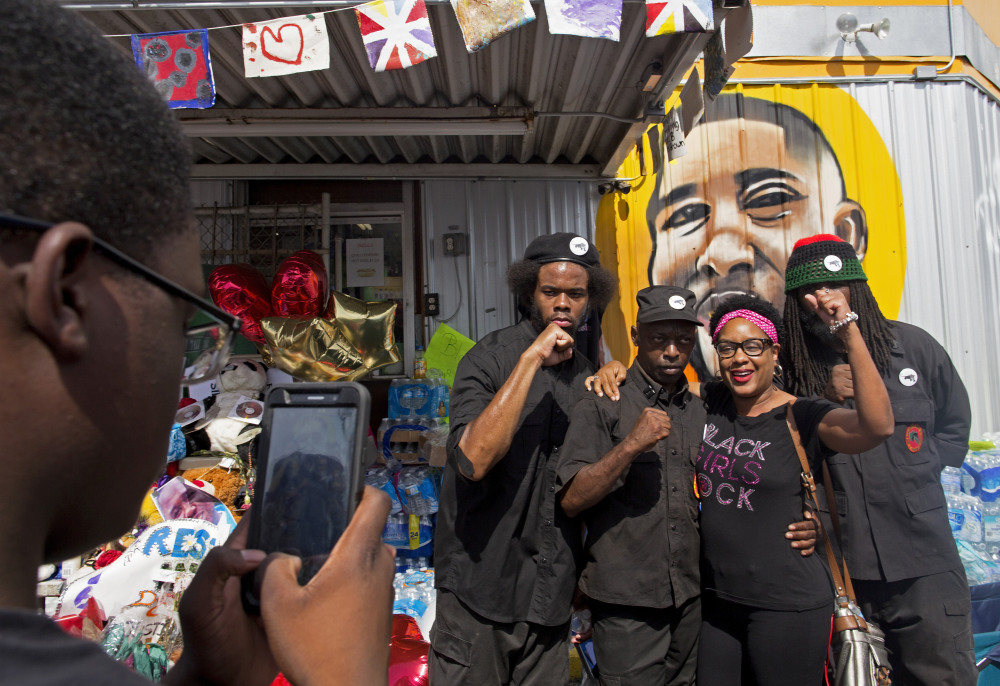
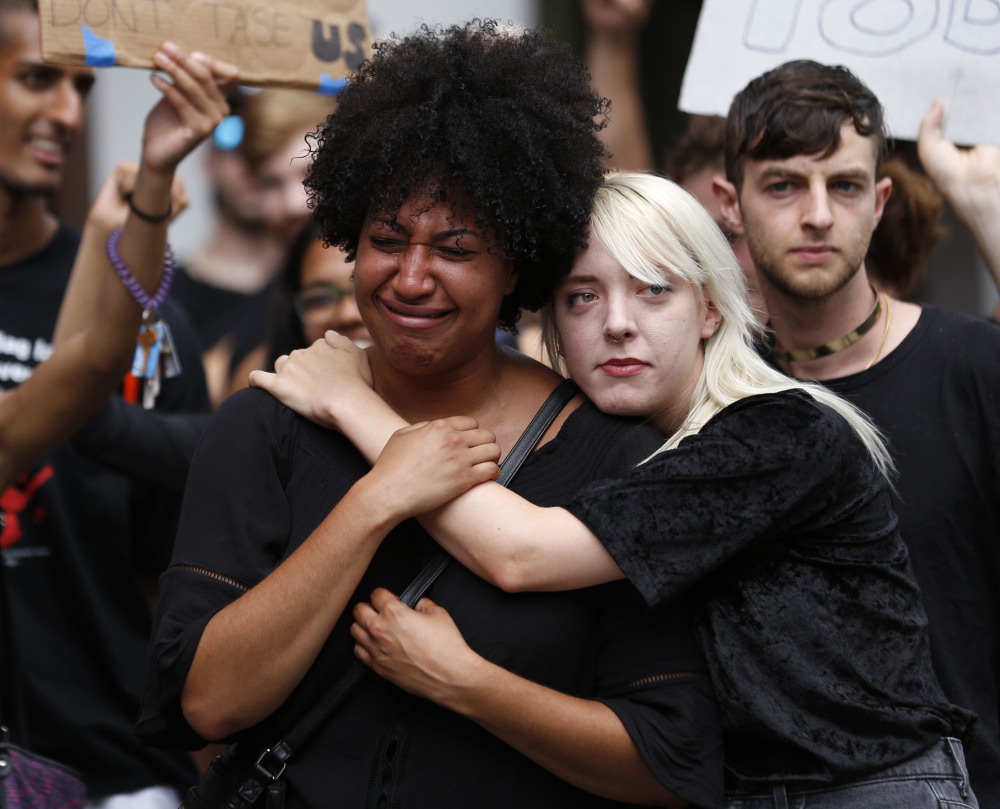
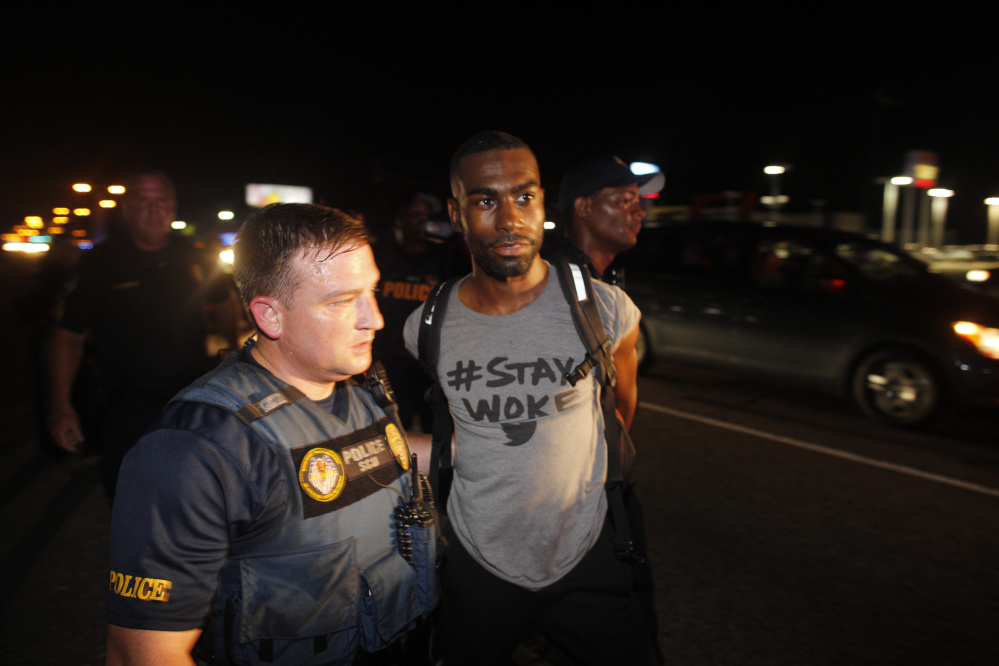
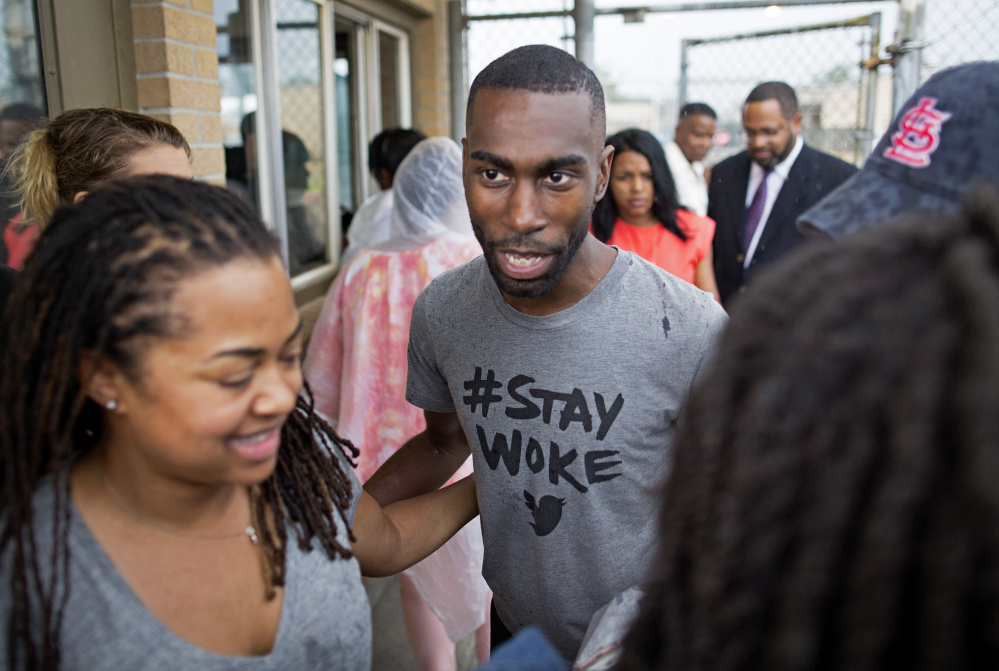
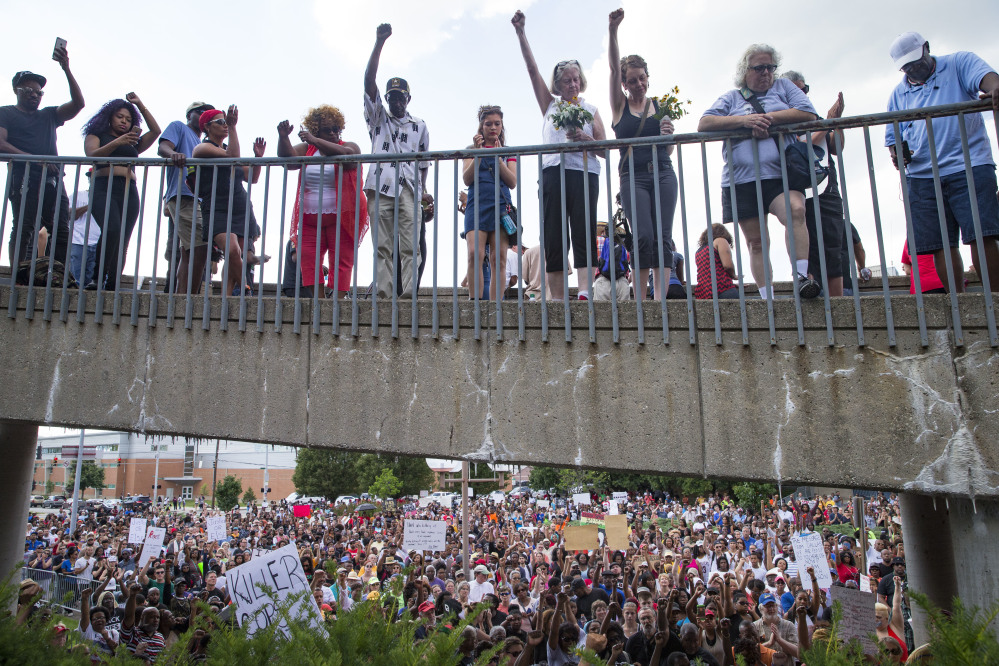
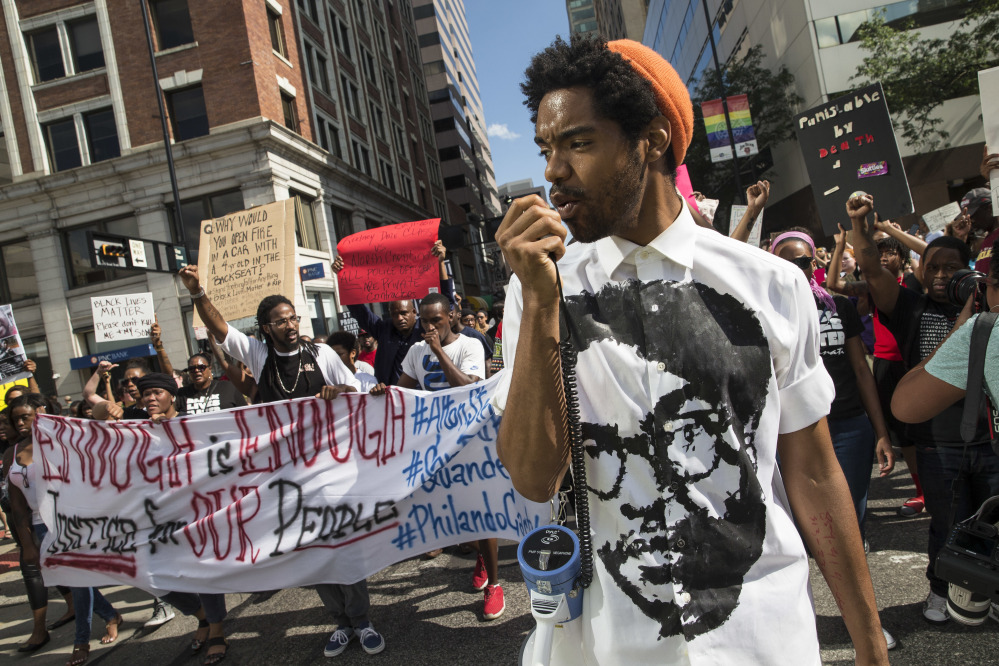
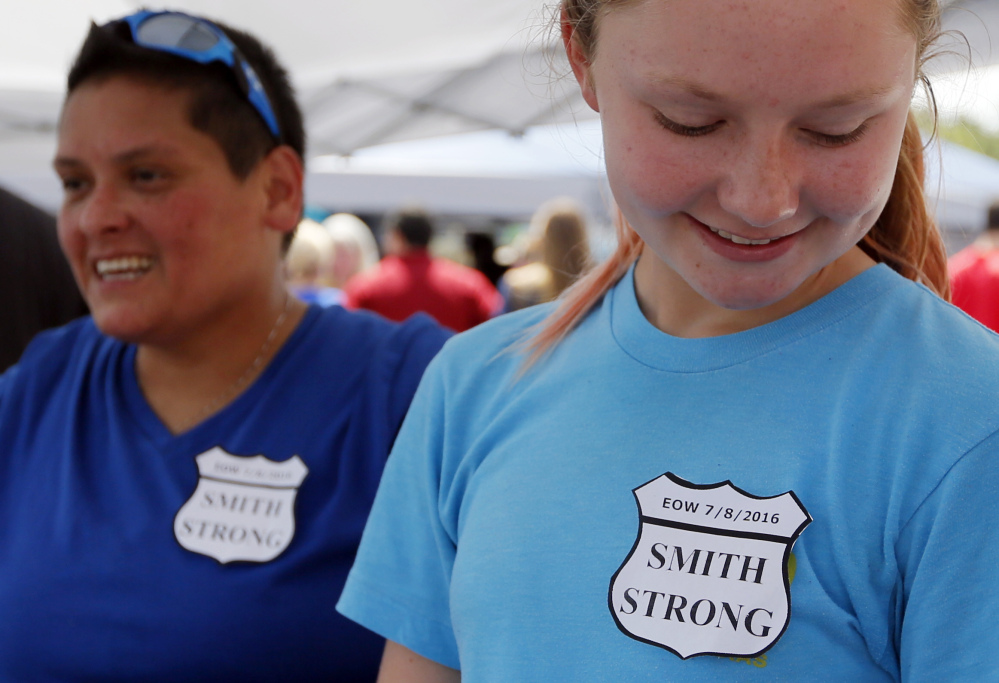
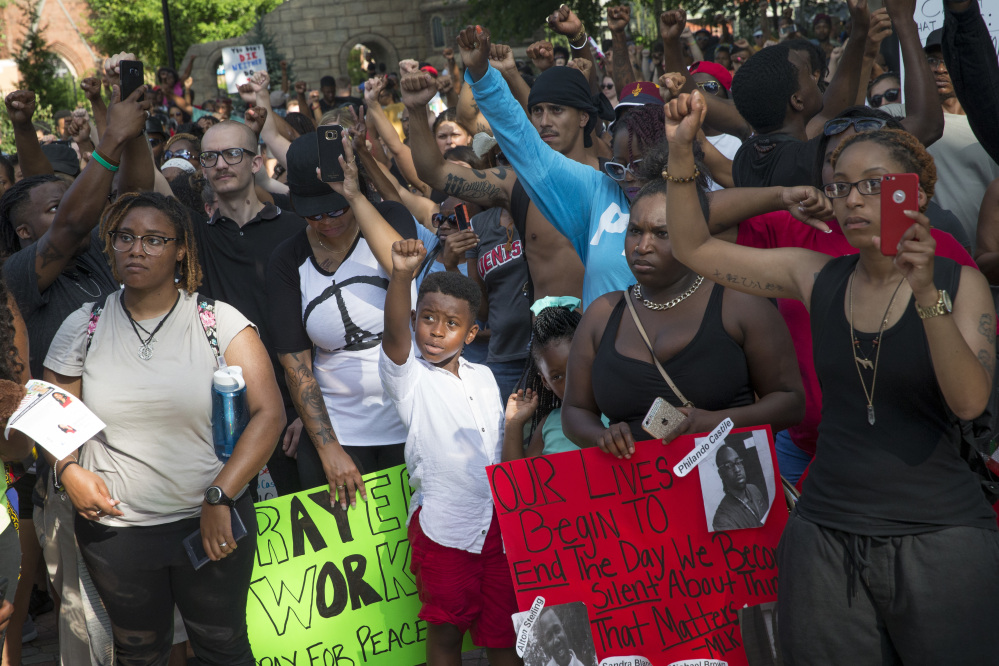
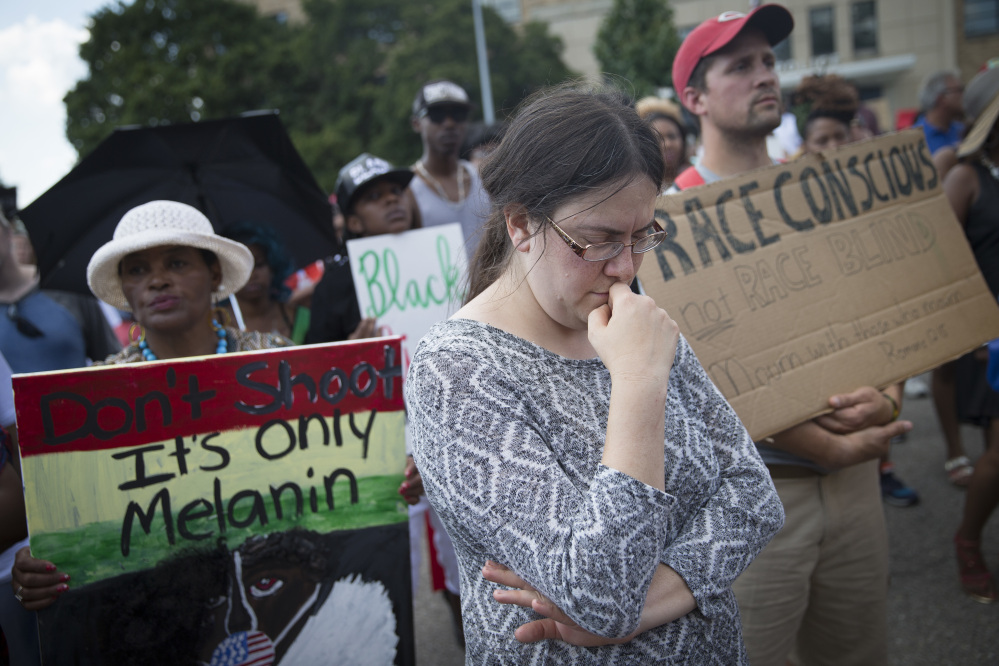
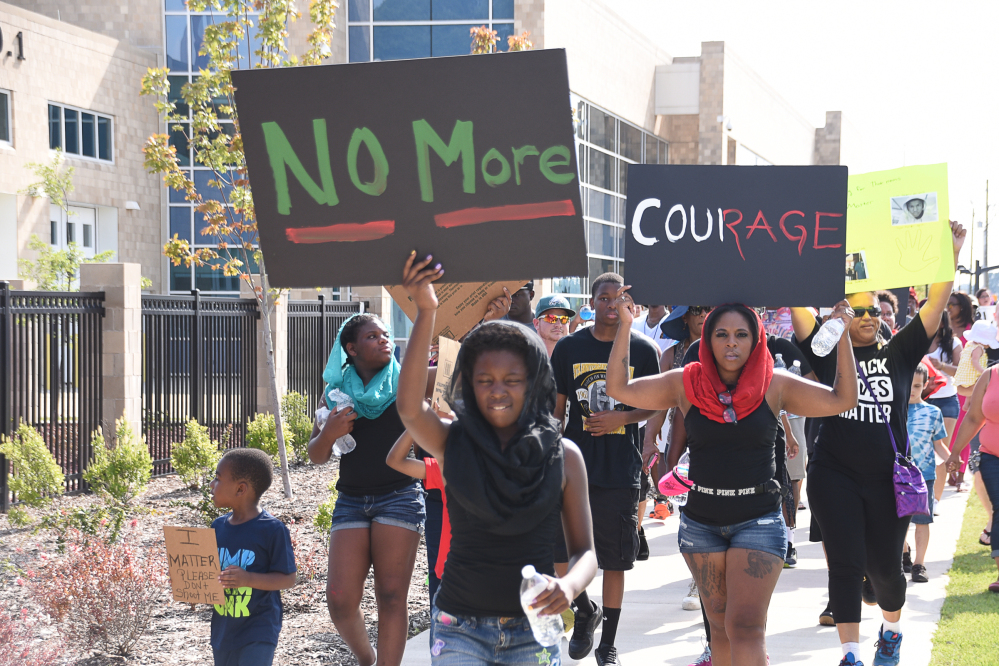
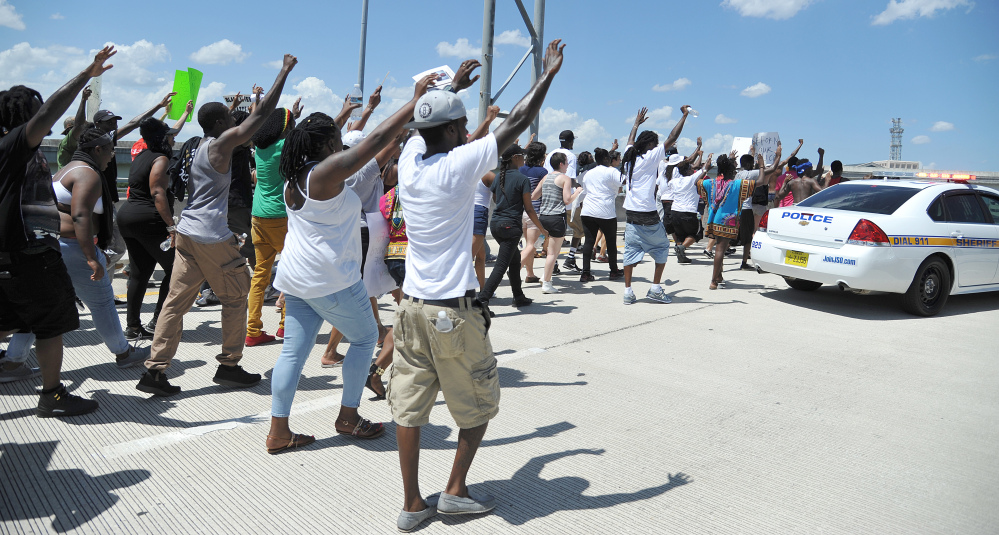
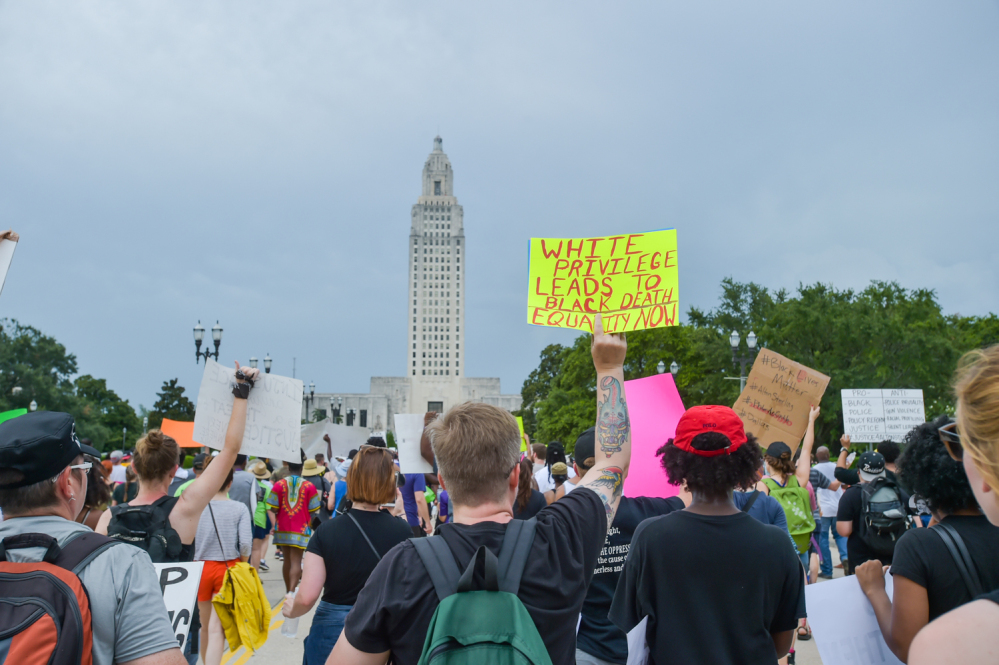
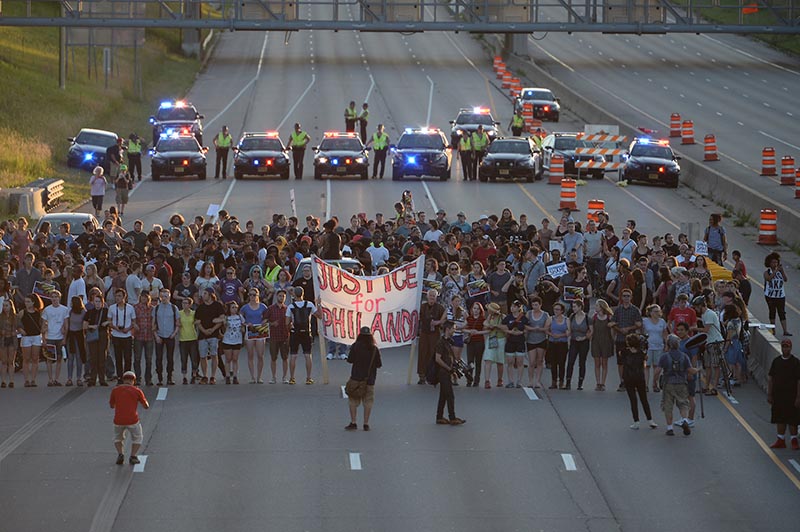
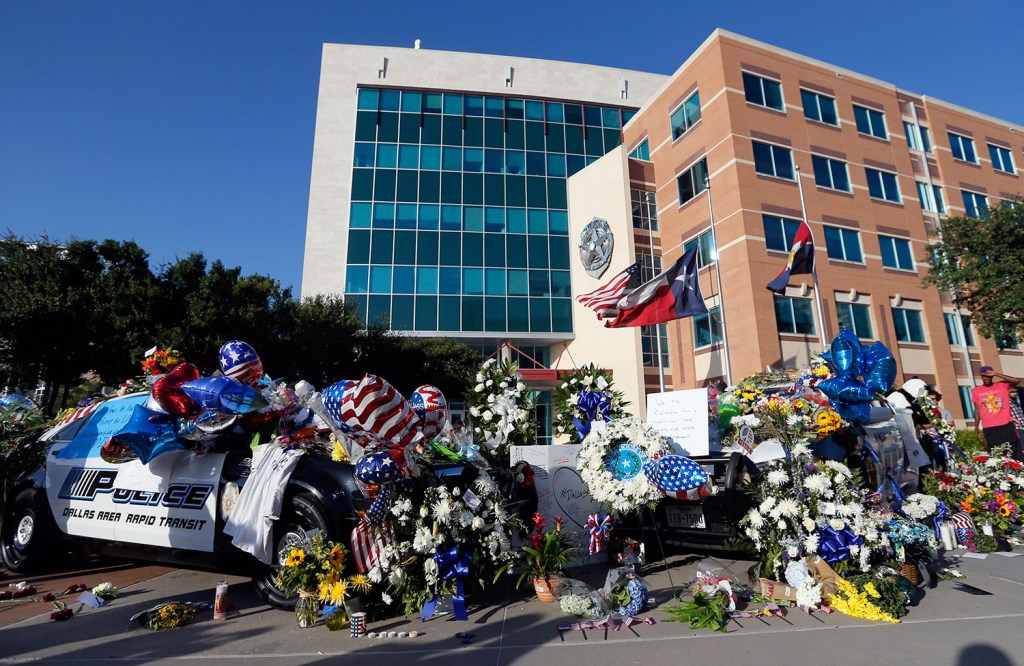
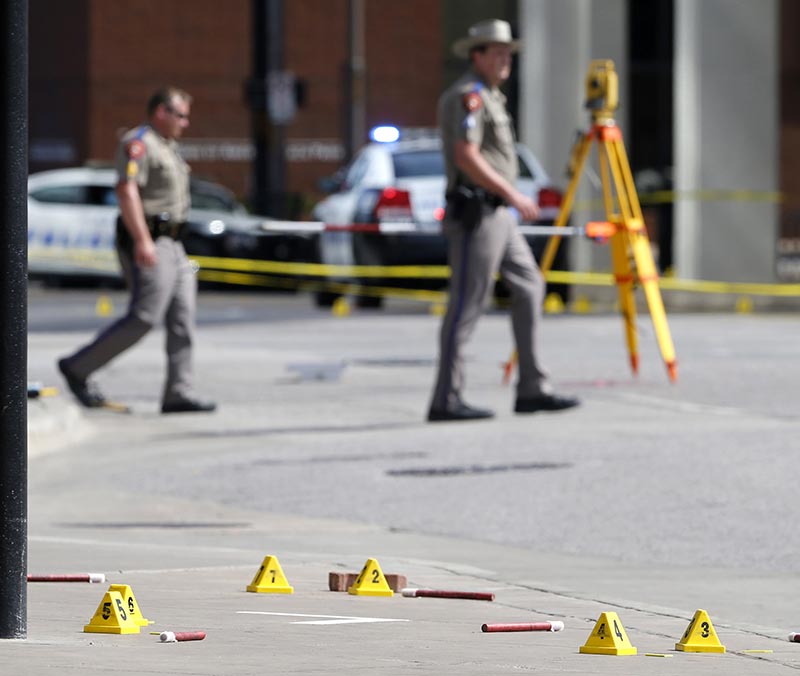
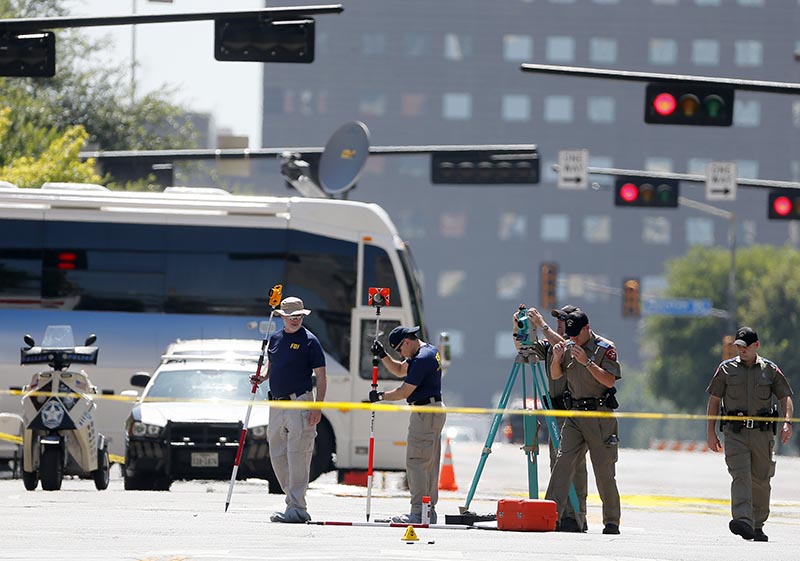
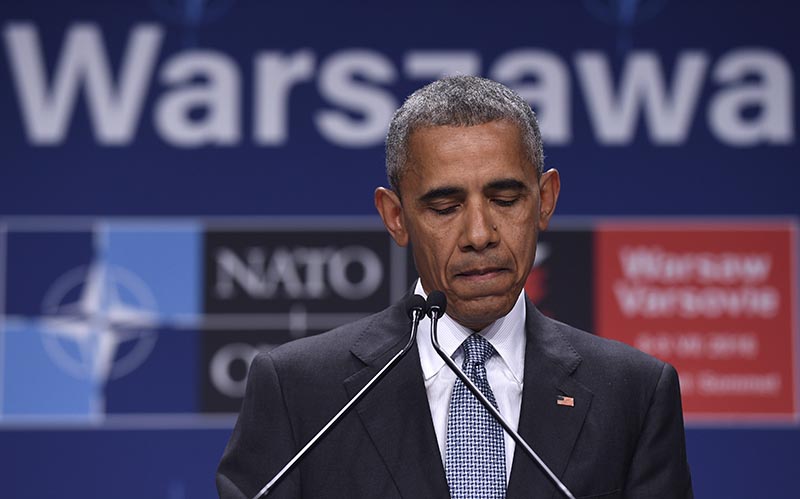

Success. Please wait for the page to reload. If the page does not reload within 5 seconds, please refresh the page.
Enter your email and password to access comments.
Hi, to comment on stories you must . This profile is in addition to your subscription and website login.
Already have a commenting profile? .
Invalid username/password.
Please check your email to confirm and complete your registration.
Only subscribers are eligible to post comments. Please subscribe or login first for digital access. Here’s why.
Use the form below to reset your password. When you've submitted your account email, we will send an email with a reset code.